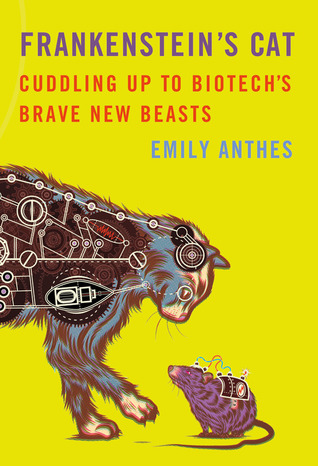 Just before Christmas in 1859, only a month after he had finally published
Just before Christmas in 1859, only a month after he had finally published On the Origin of Species by Natural Selection
, Charles Darwin found himself disturbed, even haunted, by the thought of his intellectual predecessors.
"Soon after the publication of On the Origin of Species, Charles Darwin received an unsettling letter that accused him of taking credit for a theory that had already been discovered by others. Realizing his error of omission, Darwin tried to trace all of the natural philosophers who had laid the groundwork for his theory, but he found that history had already forgotten many of them. Rebecca Stott goes in search of these ghosts, telling the epic story of the discovery of evolution and natural selection from Aristotle to the ninth-century Arab writer Al-Jahiz to Leonardo da Vinci to the brilliant naturalists of the Jardin des Plantes to Alfred Wallace and Erasmus Darwin, and finally to Charles Darwin himself. Evolution was not discovered single-handedly. It was an idea that was advanced over centuries by daring individuals across the globe who had the imagination to speculate on nature’s extraordinary ways—and the courage to articulate such speculations at a time when to do so was often considered heresy."
The idea behind this book is a fascinating and fairly original one; so often, many people who contributed to the creation of something great are forgotten, with only one person heralded as the genius. But through the centuries, there were many who flirted with many concepts related to evolution, even if they didn't come up with the theory of natural selection.
Although it took me quite a while to finish
Darwin's Ghosts, I don't think it was because the book was uninteresting. It profiled many figures who I'd never heard of, like Jahiz and Abraham Trembley, as well as many who I had heard of but didn't know much about. The book also has a chapter on Lamarck and Cuvier, who are both quite well known for their contributions to evolutionary science (Cuvier more so than Lamarck, who tends to be ridiculed).
Some of the chapters captured my interest more than others, but nevertheless Stott writes engagingly of all of these historical figures. She provides some background information but mainly focuses on their work and on the attitudes of the period. I found the chapter on Trembley and his discovery of the polyp particularly fascinating; it's an organism that we now know as a protist, and at the time it challenged the distinctions between animals and plants, exhibiting some characteristics of each. Which as you can imagine caused a lot of religious tension.
Stott uses Darwin's compiling of a sketchy list of figures in order to begin her own; she reveals that Darwin himself was no great historian, and so wasn't entirely sure whether all of the people on his list actually contributed to evolutionary research. For instance, someone informed him that Aristotle wrote of species changing over time, but in fact that was the very thing Aristotle was deeply scornful of (in the passage in question he was actually quoting and criticizing someone else who believed in species change). Darwin, not knowing Greek, included Aristotle's name, and Stott begins with him. Aristotle did do a great deal of research on animals after all.
There's a large gap in terms of time period (from the 9th century to the 17th or 19th century), but somehow the narrative still flowed seamlessly over centuries and over continents. It's all woven together quite skillfully, and the book is also so atmospheric. There are lush, evocative descriptions of the historical settings, particularly in the sketch on Aristotle, and the general societal and scientific attitudes of each period are vividly conveyed. Stott also conveys the fascination of the research, and the various scientists' burning desire to get to the bottom of it.
Many of the chapters are short, but they are succinct and informative; however, within chapters the transitioning was sometimes a bit shaky. Although they're all tied together superbly, the conclusions of many of the chapters felt too much like a broad restatement of the chapter's topic. I was glad there was some sort of resummarizing, but all the same it felt like a bit too much.
Other than that,
Darwin's Ghosts was an original and engaging book, blending science and history quite well (although I'd say there was more history). I would recommend it to those interested in evolutionary theory.
300 pages.
Rating:****
 The opening weeks of the year 1665 were particularly cold, and the sub-zero temperatures had discouraged the King of England, Charles II, from writing to his sister Henrietta in France.
The opening weeks of the year 1665 were particularly cold, and the sub-zero temperatures had discouraged the King of England, Charles II, from writing to his sister Henrietta in France.
